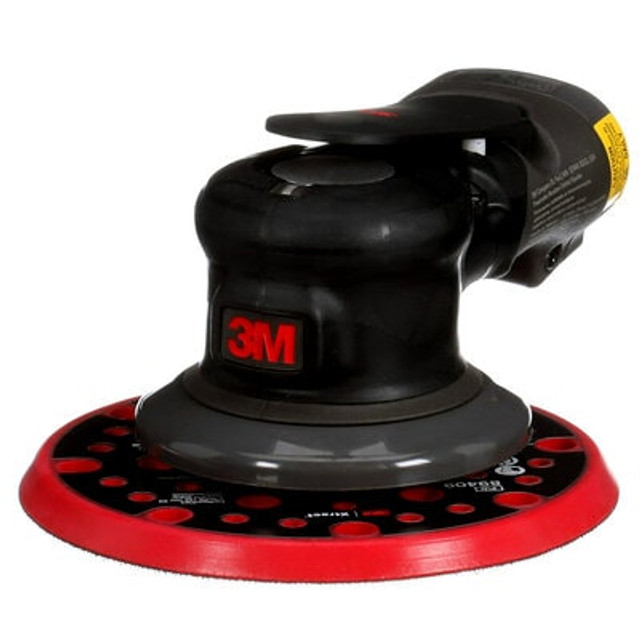

3M Products & Supplies
3M Pneumatic Random Orbital Sander, 88951, 6 in, Non-Vacuum, 5/16 in Orbit, 1 ea/Case
Engineered for performance and ergonomics, our family of 3M Non-Vacuum Random Orbital Sanders are loaded with features to reduce vibration and noise and provide greater wrist support and operator comfort. The comfortable rubber grip featuring proprietary 3M Gripping Material, curved-throttle alloy steel lever, and built-in wrist support provide comfortable control, while the recessed lever platform eliminates pinch and pressure points on the operator’s palm. The speed control dial is conveniently located on the side and controlled with the thumb. We've also lightened the load with a composite cover that extends to the base to absorb and reduce vibration and keep these tools in service by preventing cracked housings. An innovative internal muffler helps reduce noise and won’t break off.
3M Stikit Disc Pad Included
We also include the 3M Stikit Disc Pad with these sanders. These pads reduce vibration, provide excellent disc adhesion, and are designed to bring out optimal performance of these tools. The Stikit system allows quick and easy disc removal. This Stikit disc pad is made of medium density foam and has a 45 degree tapered edge, Stikit discs are sold separately. These versatile sanders also work great with 3M Hookit Disc Pads, enabling operators to use our line Scotch-Brite Surface Conditioning Discs as well.
Why use a 3M Random Orbital Sander?
Our random orbital sanders optimize sanding and surface preparation on many surfaces, including wood, metal prep for paint, fiberglass, composite materials, and many other substrates. Also known as dual action (D/A) sanders, these industrial-grade tools rotate the abrasive disc and disc pad in two simultaneous overlapping oval patterns so no single abrasive particle follows the same path twice, resulting in a swirl-free finish, even when sanding against the grain.
Pneumatic sanders are also called air sanders and run on power generated by an air compressor. These include non-vacuum (NV), central vacuum (CV), and self-generated vacuum (SGV) models. Non-vacuum models such as these are not connected to a vacuum system and are used in applications where dust extraction is not a concern.